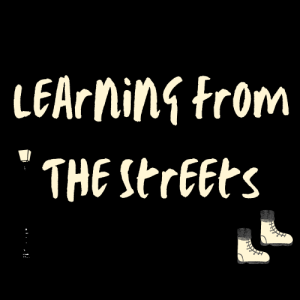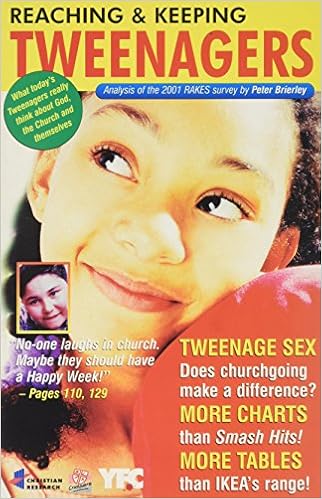Yeah, I know. That’s what I thought too…
The question that literally no one is asking.
I’ve got to admit, when it comes to the ‘future’ of, things that are buzzing around, future of the church, future of youth ministry, future of communities, future of society and welfare, they all conjure up radical thinking, deep reflection and an energy. Practice led passions, practice led prophetic crystal ball gazing, and trying to construct a way of being for the new normal.
But the same can’t be said about management can it?
I mean, has there been a ‘future of community practice management zoom webinar yet?’
No, didn’t think so.
It’s not going to get the digital airwaves crashing.
And that’s mainly why I wasn’t too sure about this piece. But then again, as I thought about it again and chatted with a few friends, colleagues and my team, I came to a different conclusion.
Because. If a new normal will exist in practice in the future, then a new approach to governance, management and leadership might be required too. Not only that , maybe its as good as time as any for a rethink about the construct of management entirely.
Why?
Well it’s not just because huge number of people have lost their jobs and therefore managing tasks and people, one of the key definitions of management, at this time has taken a back seat. But I think something else has happened too. For not since possibly the second world war has there been such a sense of collective unity, and a collective line in the sand moment across the entire world. A collective draw breath, after what seems like a relentless pursuit of goods, consumables, and work and earnings to collect such things. Much management and its motivation through the last 50 years has been market driven.
The collective draw of breath, and this has happened in the most vulnerable places as , yeah, not even the poorest have been sanctioned, (nature is healing, it won’t last, not with the tories in power).
But maybe then its the perfect time to think about management, when actually the pressure is off a bit.
Theres another reason too.
Have you noticed something?
What has struck a chord with you in the last few months, covid-19 and the pursuits of justice for the black community, oh and the outcry of Dominic Cummings?
What links them all?
That people when they are united over something operate for the good of many. That people in community react positively in crisis. That people don’t seem to need to be motivated to do good. That also, leaders (Johnson/Trump included) can become so cocooned in their own power, and shielded from real people that they can only think the worst of them.
I have ,as you know, become a big fan of Rutger Bregman, and his latest book , Humankind (2020).
It brings to the fore a new reality, one witnessed profoundly in the last 10 weeks that society did not crumble during covid-19, even if the negatives seem closer in the memories, that actually what kept things going was a collective spirit and energy, from clergy being innovative, communities looking out for each other, respectful queuing, NHS claps and rainbow banners, you tube videos and, yeah, even the media showing less stress filled tv shows. Things got so bad/good that many people can retweet Piers Morgan confidently.
Bregman also reflects on the issues in organisations and companies when leaders, who may well once have been good people, become corrupted by power, and the implications of the lack of distance from top floor to bottom floor. Its worth a read, because in relation to a hidden but closer reality to the truth, he asks the following question:
‘Can we use our heads and harness rationally to design new institutions? Institutions that operate on a wholly different view of human nature? What if schools and businesses, cities and nations expect the best of people instead of presuming the worst? (Bregman, 2020)
He uses the examples of a number of institutions, negatively, including police forces that adopted harmful approaches, and positively prisons in Norway that have emphasised human respect not punitive punishment, schools that focus on Individual learning – as practices that are shaped around human dignity (or not as in the case of the police) .
But what if schools presumed the best in their pupils? for example? and how many times have the police suggested that detached youth workers are required to do informal policing, and yet 99 times out 100 the youths workers discover that young people are sitting, chatting and doing nothing more than being young people, creatively energetically enjoying the space. Like young people should be. And people tend to be 99% of the time.
And that’s about practice not about management.
Through managing practices where staff and resources are used to enhance the goodness, gifts of people, might well be considerably easier than the effort it takes to put policies and practicers in place that avoid the worst. (And I’m not advocating the removal of policies by the way)
Management takes a number of forms, even in the third sector, from management of organisations, management of churches, of charities and managing those who manage churches, and even where the word management isn’t used, its often what is done. Theres also management of the self, but that’s not for now. Though we might manage ourselves differently if part of it is to recognise that we might actually be good kind humans at our core.
And we might, because of the likely personality issues in management and those with power (10% more likely) act, if not under stress better that is often expected. Admit it, ‘I didn’t expect you to do that’ is usually only said when someone acts in a better way.
Is it time to do a Control-Alt-delete with management and give it a reboot?
- Might it be time to loosen control?
Many organisations die with limited imagination, innovation and creativity. Too much control and bureaucracy and everything stagnates. The creatives, the argumentatives, those who generate conflict of ideas are often sidelined, yet, more often than not conflict is good, it spurs things on. Storms shake.
Sometimes it’s better not to to try herding the cats. Its not really in their nature. But just make sure there’s the best environment for the cats to be able to be themselves.
Human nature is more good than bad. People do generally want to please. People do in the main want to have purpose and be creative, significant and contribute.
A type of control that is perpetuated by the attitude that people are only motivated by carrot or stick has to change too. They aren’t. Even if its still widely mythically attributed. Especially in the aspects of our lives where its not about money, why volunteer for the myriad of things if its carrot or stick- neither make sense..?
Deci and Ryan suggest that as humans were motivated by three things, competence, autonomy and belonging. Being part of something, being good at something, and being able to be in the decision making process of the things themselves. Research described by Bregman actually showed that monetary incentives demotivated. You’ve heard me write about this before.
Now, all of competence, belonging, autonomy, automatically assumes that people are good at stuff, people are likeable to have personal connections and that people enjoy rising to challenges, taking risks and having their reigns loosened a bit. In short, people are motivated by being treated respectfully and humanely, when they are believed in. Strange that. Time to lose control a bit. Treat people like animals or caged in, and how might they behave. Then its about control and policing. Think about institutions again. Schools and prisons, but also not just there..
2. What about an alt – and Alternative view of Humanity, in which management is about trust and believing in people as people who are not just capable of kindness but for whom it is closer to their core. Yes there are exceptions and some people may abuse this – but why should the exception determine the approach?
What might alternative management look like – before hurrying back to what was before?
What needs to shift?
And thirdly, and I’m desperately trying to make the best use of this concept..
Delete?
Is it attitudes?
Actually, it could be our own as managers and leaders. For, there’s too easy a temptation to think, no, presume, the worst in people. Leaders and managers can be so easily corrupted by power.
If human endeavour has been witnesses, maybe the way people are managed, if at all, needs to change. What needs to change in the management of people in community work? What needs to change in management of projects of Youthwork? What even could be deleted in the management styles of supermarket like Asda (where people have risen to the cause, significantly) and Clergy (who have adapted equally) and anyone else..
So,
If our beliefs about people are shifted in the realisation that humans are kinder, more generous, more supportive than we realised – for a whole generation… what might that mean about managing people in the future?
Thats the question, that no one will be asking.
But it’s here to start a reflection…
References
Bregman, Rutger, 2020, Humankind. (obviously)








 There may be learning that can be gleaned from these, though often it is little more than general knowledge, it gives an insight into a culture, if a general culture actually exists amongst young people/people.
There may be learning that can be gleaned from these, though often it is little more than general knowledge, it gives an insight into a culture, if a general culture actually exists amongst young people/people. It was only from there, and with people that he was able to create the possibility of change. It is this kind of knowledge that we need, of what is actually happening. No amount of strategising with statistics, consultation without concrete collaboration, planning without people will do anything other than provide a service that people might only reject or reluctantly accept (as a user). It is back to the strategising from the context and shaping possibilities through conversations, thats the knowledge we need. Its knowledge from people, with people and of people. As they really are. As youthworkers, we need to leave spaces to be trusted to be told stories. Often i hear more stories of life from young people on the streets, than those in schools or churches, the environment doesnt always lend itself. Yet that doesnt mean that we dont keep trying at listening, hearing and provide spaces where we value stories as knowledge more than anything. As youthworkers we need to be in the heat of the action, and attentive to learning from it.
It was only from there, and with people that he was able to create the possibility of change. It is this kind of knowledge that we need, of what is actually happening. No amount of strategising with statistics, consultation without concrete collaboration, planning without people will do anything other than provide a service that people might only reject or reluctantly accept (as a user). It is back to the strategising from the context and shaping possibilities through conversations, thats the knowledge we need. Its knowledge from people, with people and of people. As they really are. As youthworkers, we need to leave spaces to be trusted to be told stories. Often i hear more stories of life from young people on the streets, than those in schools or churches, the environment doesnt always lend itself. Yet that doesnt mean that we dont keep trying at listening, hearing and provide spaces where we value stories as knowledge more than anything. As youthworkers we need to be in the heat of the action, and attentive to learning from it.
